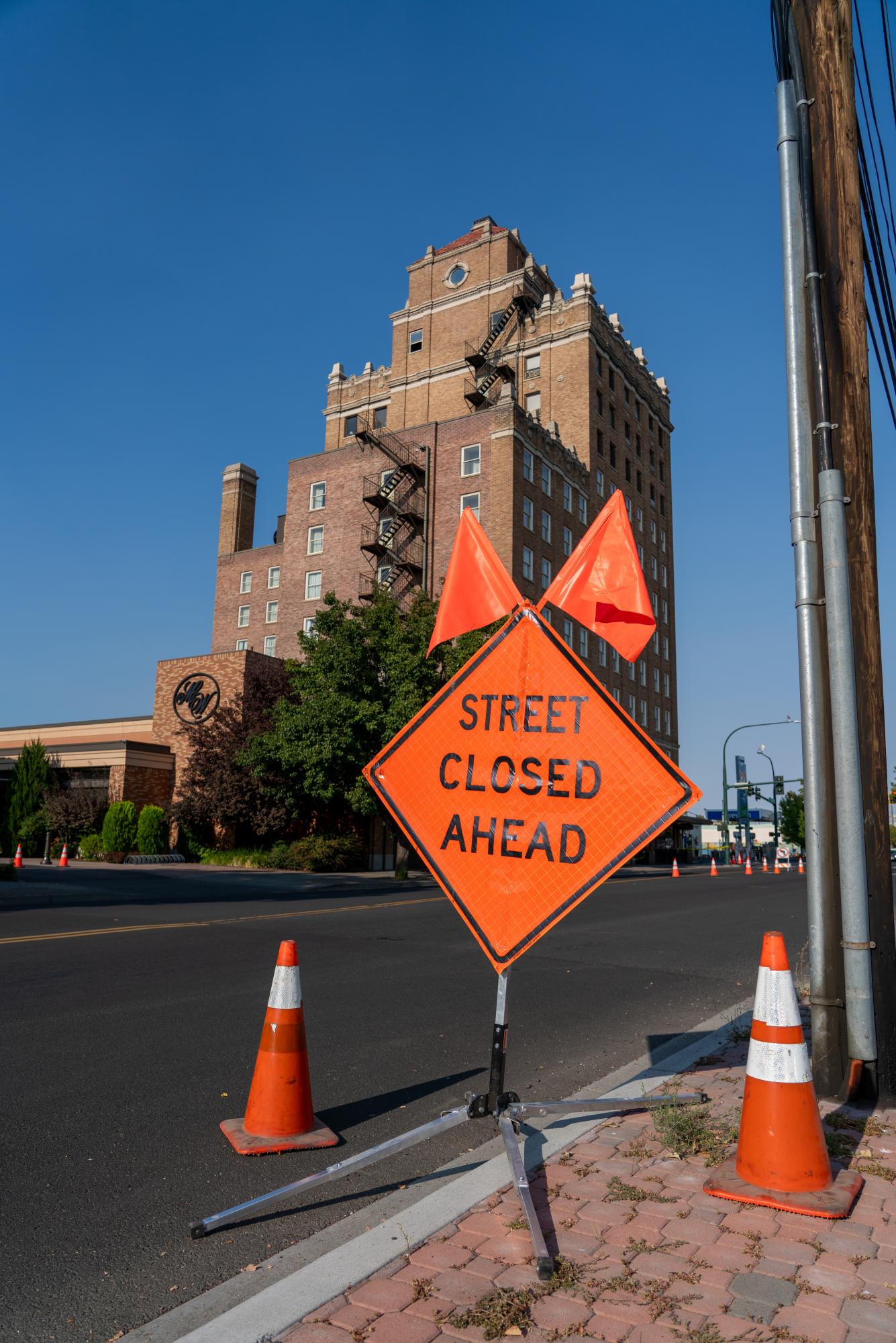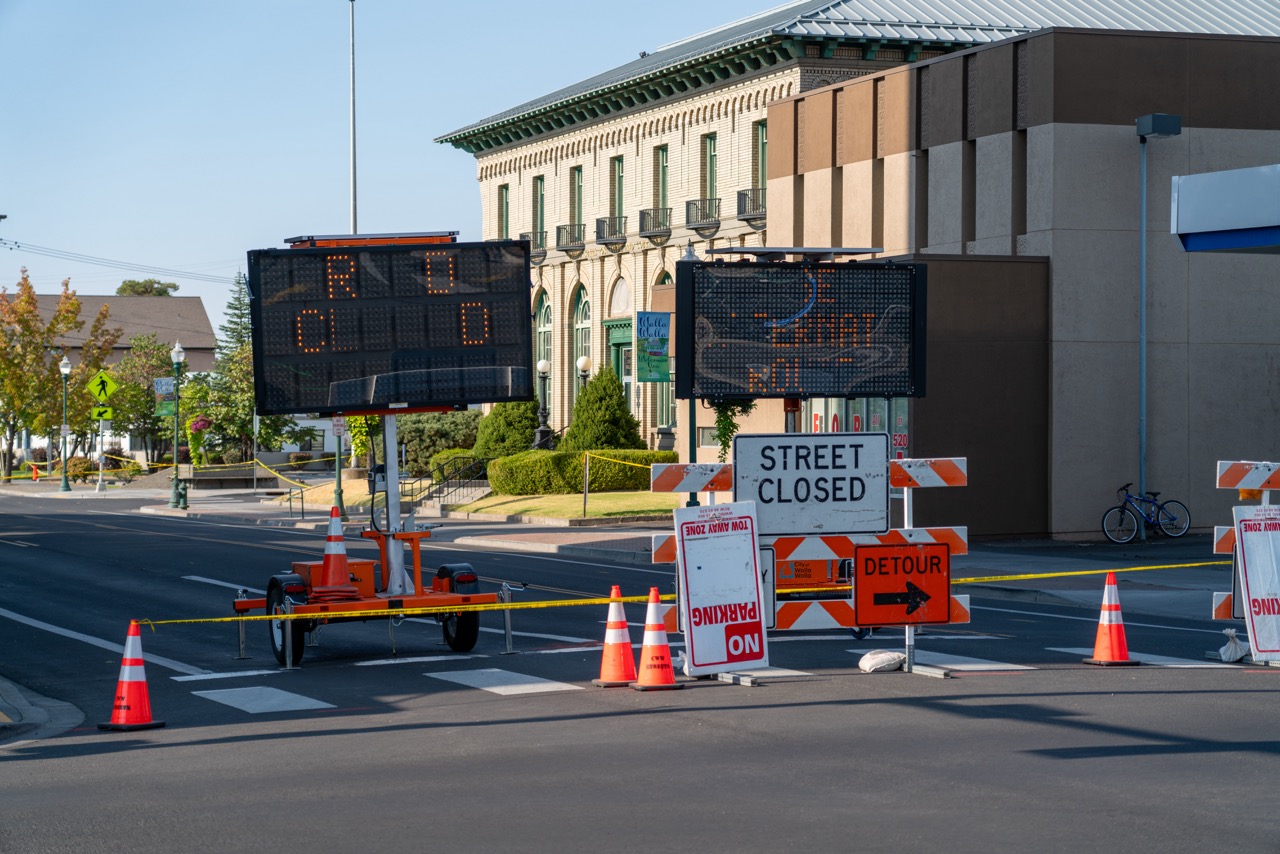
On Thursday, Sept. 14, The Marcus Whitman Hotel and Conference Center was evacuated due to a mysterious chemical smell, and as of Sept. 20, remains closed due to the potentially hazardous clean-up.
The hotel was evacuated after the Walla Walla Fire Department (WWFD) received reports of chemical odors coming from the basement, and readings indicated potentially unsafe conditions.
“The Marcus Whitman safely evacuated all guests and visitors on Thursday, Sept. 14 due to chemical odors that are potentially unsafe located in the hotel basement. All guests have safely relocated … to nearby accommodations. We are waiting for local agencies to share further details that will inform our reopening,” said a statement from The Marcus Whiman.
“The contractor, Clean Harbors, found what appears to be pure gasoline present in a 10-foot-deep sump in the basement of the Marcus Whitman Hotel and Conference Center … There is no pipeline connecting gas station equipment to the hotel,” said the release.
According to the Sept. 14 press release, the chemical odor is suspected to be from an underground tank of unleaded gasoline from the Chevron station across the street. WWFD, the Washington Department of Ecology (DOE) and Clean Harbors Environmental Services, a private company contracted by the hotel, have been working on the site to pump the remaining gasoline out of the basement.
In recent years, the threat of leaky underground storage tanks from gas stations has gained more attention. In Washington, more than a third of underground tanks are over 30 years old, raising questions about the increase in potential leaks. There are 71 tanks over 30 years old in Walla Walla County.
According to the Department of Ecology, which keeps track of all operational and inactive regulated underground storage tanks, all three of the tanks at the Chevron on E Rose St were installed in 1981. They are now over 40 years old.
Crews from Clean Harbors emptied the suspect tank on Saturday night so it can be tested for tightness and leaks. On Monday, the tank passed the tightness test, indicating it is not the source of the leak. WWFD is testing all fuel lines and gasoline tanks at the Chevron and Circle K stations to determine the source, which has yet to be confirmed. On Sunday, Sept. 17, the crews started pumping the gasoline out of The Marcus Whitman basement sump into a frac truck parked outside.
Through the ongoing process, air-quality sensors are in place throughout the hotel and outside, used to detect concentrations of volatile organic compounds (VOCs) and an LEL (lower explosive limit). In case monitors do detect VOCs or LELs, an alarm will sound and the crews will evacuate.
A previously unidentified sump in an abandoned building between the Chevron and the Walla Walla Post Office recorded extremely high concentrations of VOCs and a scent of fresh gasoline was detected Monday night. The basement was discovered in similar condition to The Marcus Whitman’s and has been ventilated and pumped by Clean Harbors.
A hydrogeologist from the DOE is currently conducting an investigation into the source of the gasoline and its impact on groundwater. Absorbent booms have not detected any contamination into Mill Creek. Starting to the east and northeast of The Marcus Whitman, drilling is underway to determine the extent and depth of the plume. The WWFD is testing all fuel lines and gasoline tanks at the Chevron and Circle K stations for leaks to determine the source.
WWFD is on site to provide assistance as necessary.
Underground tanks have a long history of leaking, given their size and the amount of pressure put on them by their contents. The Chevron station on E Rose has 10,000 gallon tanks.
An underground tank of a flammable liquid, like gasoline, is especially dangerous if it leaks into the buildings and waterways around it. The City of Walla Walla assured the public that there is no indication of the gas leaking into the City’s underground infrastructure or waterways.
According to the American Economic Association, about 60% of all underground storage tanks have experienced at least one leak, and their cleanup costs about $1 billion a year in state and federal funds.
A City of Walla Walla press release from Sept. 17 indicates that there is no immediate risk to the community, but no one should enter the closed area during the pumping operation.

“If you don’t need to visit the Post Office or Chevron store, you should avoid the area to limit distractions to the workers and emergency personnel,” said the release.
During the middle of the pumping operation, the Walla Walla Post Office temporarily moved its operations to West Richland due to elevated levels of VOCs in their basement. Mail delivery services are not expected to be impacted.
Customers are advised to pick up their mail and packages at the West Richland Post Office; Post Office box customers can collect their mail at the College Place Post Office.
“This is only a temporary change pending clearance by emergency personnel,” the United States Postal Service said in the release.
The Chevron store and its fuel pumps have reopened and are dispensing 87 and diesel fuels only.
WWFD has created a list of standards and requirements that need to be met and approved by various agencies prior to reopening the Marcus Whitman and have finalized an incident action plan.











